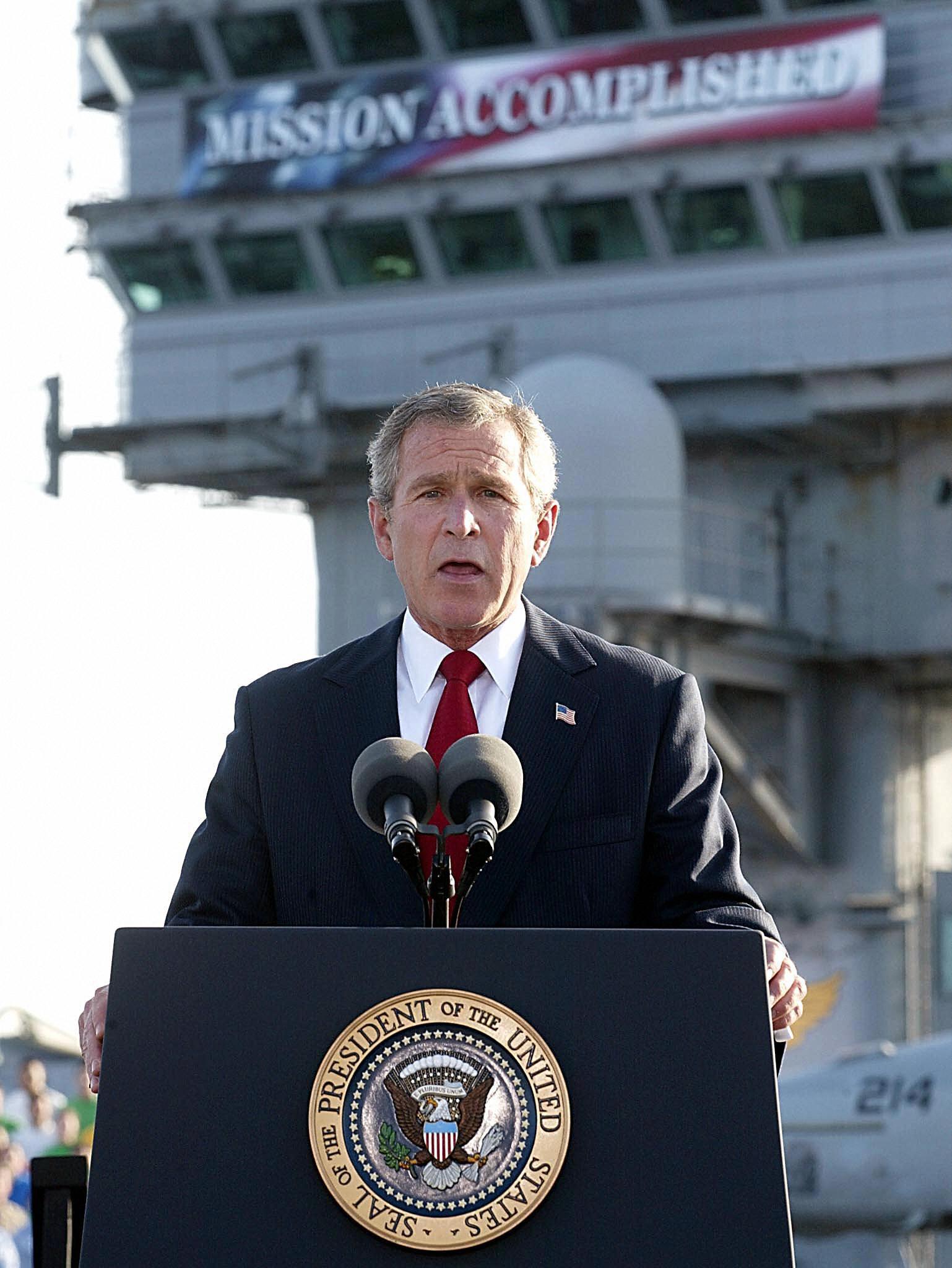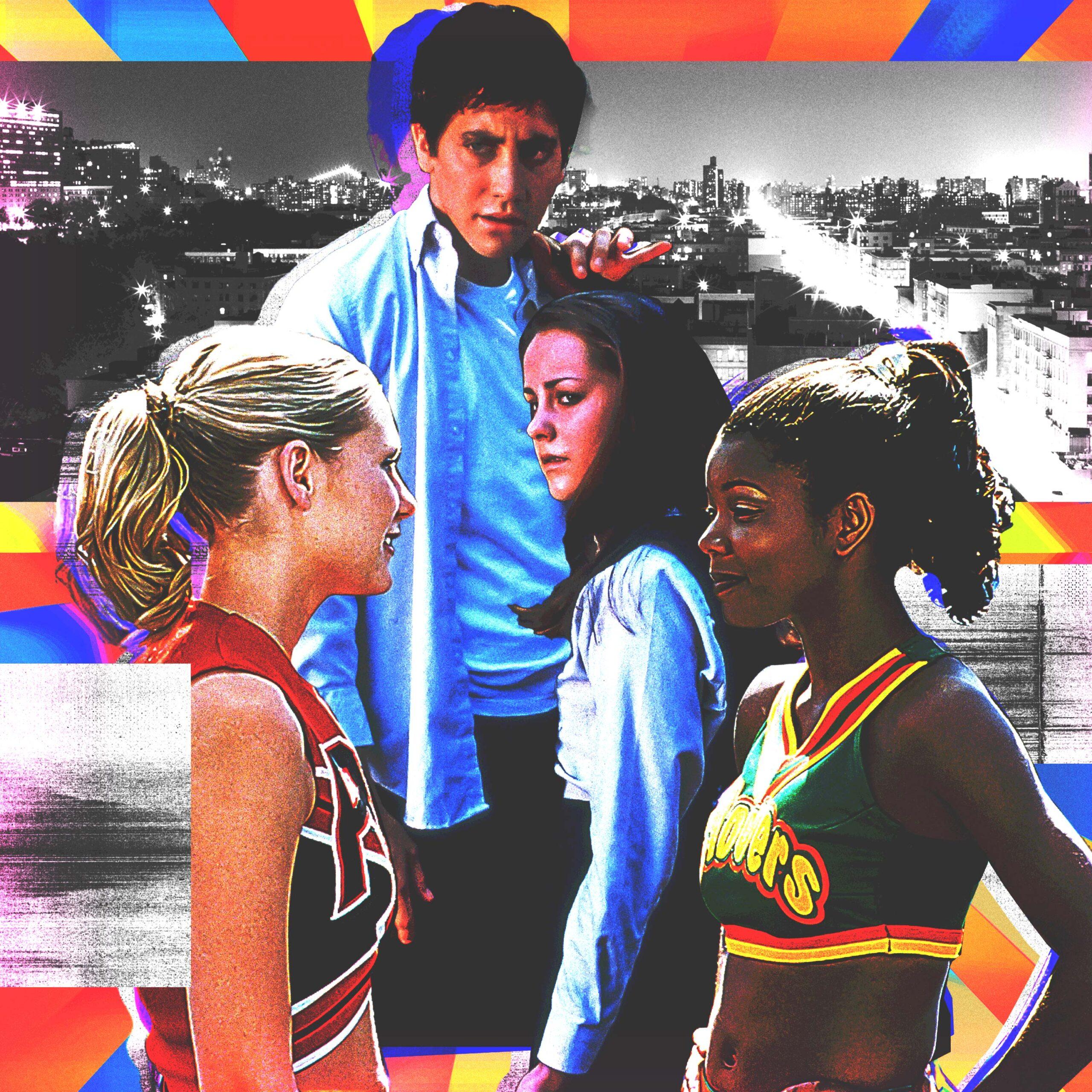Hosts
About the episode
As a new millennium gets underway, two beloved high school films—one full of pep, the other drenched in dread—reflect America’s sudden shift from post-Y2K cheer to post-9/11 confusion.
Host: Brian Raftery
Producers: Devon Baroldi, Brian Raftery, and Vikram Patel
Sound Design: Devon Baroldi
Mixing and Mastering: Scott Somerville
On May 1, 2003, a Navy jet carrying President George W. Bush landed on an aircraft carrier off the coast of California. A few minutes later, the president was behind a lectern, not far from a star-spangled banner that read “MISSION ACCOMPLISHED.” As thousands of military personnel looked on, Bush told the cheering crowd that the country’s military efforts in Iraq, which had begun less than two months earlier, were already over.
It was a claim that, depending on your view, was either hopelessly naive or utter bullshit (as it turned out, American troops wouldn’t leave the country for more than eight years). But if there was a guiding philosophy to Bush’s presidency—which lasted from 2001 to 2009, yet seemed much longer—it was this: Don’t look back, don’t admit defeat, and never stop moving.
Bush wasn’t the only one who’d adopt that line of thinking to get through the early 21st century. It was a strange, stressful time to be alive—a cascade of painful events: 9/11 and the War on Terror. Hurricane Katrina. The mortgage crisis. Like many people, I couldn’t wait for those years to be over. And once they were, I managed to put the Bush years as far from my mind as possible. Mission accomplished.

George W. Bush aboard the USS Abraham Lincoln on May 1, 2003, when he declared major fighting over in Iraq
But over the past year, I’ve gone back on that decision. I started rewatching and reexamining the movies of the 2000s—a remarkable period for Hollywood, both commercially and creatively. Franchise properties, already a key part of any studio’s portfolio, exploded during those years: Harry Potter, Shrek, The Lord of the Rings, Spider-Man. At the same time, there was a rush of smart, somber films that reflected the era’s downbeat mood, from No Country for Old Men to Zodiac to There Will Be Blood. It was a great time to be a movie fan—and a moviemaker.
What’s really striking about the films of that time, though, is the way they reflect a shift in the American mood. In 2000, our big-screen heroes were optimistic strivers who always wound up doing the right thing. By the time Bush left office, those go-getters were replaced by morally murky desperados doing whatever they could to get by. In just eight years, we’d gone from Erin Brockovich to Michael Clayton.
How did America, and Hollywood, change so much in such a small amount of time? In my new narrative podcast, Mission Accomplished, I try to answer that question. The show features all-new interviews with filmmakers about the making of such beloved Bush-year movies as Bring It On, Anchorman, Donnie Darko, 25th Hour, and Iron Man. It also looks at how the movies of the 2000s capture the chaos, confusion, and sporadic joy of that era. Along the way, you’ll hear from the likes of Tony Gilroy, Adam McKay, Oliver Stone, and other writers and directors about the wildest, most unpredictable period of the 21st century—at least until the 2010s came along.
Check out Mission Accomplished on Spotify or wherever you get your podcasts, starting today on the Big Picture feed.

